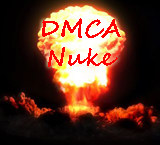 My take as a Web lawyer is that the Digital Millennium Copyright Act (DMCA) (PDF summary) is abused to suppress free speech and prevent competition in the Internet marketplace. If someone has filed a false DMCA complaint against you for content on your website, consult your Internet attorney immediately to determine what your course of action should be.
My take as a Web lawyer is that the Digital Millennium Copyright Act (DMCA) (PDF summary) is abused to suppress free speech and prevent competition in the Internet marketplace. If someone has filed a false DMCA complaint against you for content on your website, consult your Internet attorney immediately to determine what your course of action should be.
(Please note – I am not accepting any clients in DMCA complaint matters at this time).
According to Google, more than half of the DMCA complaints it receives involve businesses targeting competition. Here’s the key stat: 37% of the claims were bogus. In other words, just because someone claims you’re violating the DMCA doesn’t necessarily mean that you actually are. So there’s no need to panic if you receive a DMCA complaint.
In general, here are some of the steps that some Internet marketers take when confronted by bogus DMCA complaints. Consult with your web lawyer to discuss specifics before doing something though.
1. Back up the alleged infringing content and temporarily take it down from the site until the dispute is resolved.
2. If there’s a chance that your website host will take down your site, start looking immediately for alternative hosting that is “free speech” friendly.
3. File a counter-notification under the DMCA if it is clear that the infringement claim is bogus.
4. If it turns out that the other party is infringing, file a DMCA complaint against him.
5. Demand a public retraction (such as a video apology or letter that you can post online).
6. In Legal Strategy Session with your attorney, consider suing for the false claims made. Under the DMCA, you may be entitled to damages, attorney fees, and costs for dealing with a bogus DMCA complaint. Note that you may have other claims too. For example, if your hosting company decides not to continue hosting your website because of one or more bogus DMCA claims, you may be able to seek damages for tortious interference with business relationships. In addition, some obtain injunctions to prevent future harassment.
17 U.S.C. § 512(f) Misrepresentations. – Any person who knowingly materially misrepresents under this section —
(1) that material or activity is infringing, or
(2) that material or activity was removed or disabled by mistake or misidentification,
shall be liable for any damages, including costs and attorneys’ fees, incurred by the alleged infringer, by any copyright owner or copyright owner’s authorized licensee, or by a service provider, who is injured by such misrepresentation, as the result of the service provider relying upon such misrepresentation in removing or disabling access to the material or activity claimed to be infringing, or in replacing the removed material or ceasing to disable access to it.
Some post their experiences of dealing with bogus DMCA claimants at consumer protection and free speech websites. The key here is to tell the truth and back it up with documentation. Your Web lawyer can tell you whether what you plan to say crosses the line or not. Of course, anonymous flames destroy credibility and are arguably just as unethical as filing false DMCA infringement notices.
To your success!
-Mike the Web lawyer
